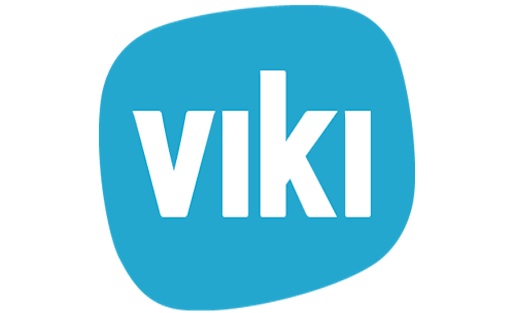As digital video continues to disrupt the traditional TV world, there are complications beyond just those affecting the business model.
The move of video to the Net also has caused problems for viewers who need captions. Whether deaf or hard of hearing, or speakers of an obscure language, it’s often difficult for these users to access online entertainment because there aren’t regulations requiring accurate, timely captions on digital content as on cable and broadcast.
But that’s starting to change, thanks to new regulations and community-based advocacy around the issue. Starting April 30, the Federal Communications Commission is requiring more accurate captioning on all online content. As part of the Closed Captioning of Video Programming legislation, Chairman Tom Wheeler and the FCC are requiring that digital video providers work toward more synchronous audio and captions throughout complete programs in a way that isn’t obstructed by any other information on the page. The mandate, 10 years in the making, will make programming on Netflix, Hulu and others more comprehensible for the deaf and hard of hearing.
!["We want people to know they have the power to [watch video] content. It doesn’t have to be government or corporate driven. It can be driven by us," Viki.com's Tammy Nam said.](https://i0.wp.com/mediashift.org/wp-content/uploads/sites/8/2014/04/Tammy-Nam-General-Manager-Viki-.png?resize=262%2C254)
“We want people to know they have the power to [watch video] content. It doesn’t have to be government or corporate driven. It can be driven by us,” Viki.com’s Tammy Nam said.
General manager of Viki.com Tammy Nam said the subtitling function lets fans caption content in real time.
“Because we started out as a community-based platform, we’re known as that,” she said. “The mission of Viki has always been to break down language barriers. The more I learn about sign language, the more I realize within the community, they consider sign language a language unto itself.”
Matlin took to Twitter in 2009 to demand better captions on the web — a cause that helped lead to the FCC’s new ruling. We also spoke to Matlin about her involvement with Viki.com, how the Internet has changed closed captioning and her passion for the deaf community.
Below is an edited version of a recent phone interview with Matlin through her interpreter, Jack.
Q&A
Can you tell me a little bit about your advocacy for the deaf?
Marlee Matlin: I’ve been working on closed captioning for a long time. Before I even became an actor, I wrote a letter to the president. I didn’t get any response … I watched TV with my own captions and made up the story in my head as a little girl. [Back then], 80 percent of TV had no closed captioning. 35 million people had no idea what was going on on TV, and then the American Disabilities Act got passed. I decided to testify in front of Congress to say it needed to be mandated, so every TV would have a little chip that would make captions available.
Now we’re in a different age. Everything that is on TV is on your computer, iPhone. What’s been happening is that all that stuff we got captioned moved to the Internet without captions. The technology is different. We had to start from scratch. We had to make noise. So it’s happening slowly but surely.
What prompted you to get involved with Viki?
Matlin: [On Viki], there is video material that the consumers and the fans caption. It’s for people learning ESL, how to read, people speaking different languages. They have almost 200 [languages subtitled] now.
I don’t want to wait two years to watch TV [because Netflix, Hulu and others are slower to get certain programming captioned]. Viki users do it correctly, fast, and to date, they’ve captioned 600 million words. It has entertainment value and social value.
As a part of the deaf community, do you find that video services like Hulu and Netflix aren’t as good as they could be at providing captions?

Marlee Matlin has been a longtime advocate for the deaf community, starting by lobbying Congress in the ’90s for broadcast TV captions.
Matlin: Their process is a lot slower than I could like it to be. I feel like 35 million people are second-class citizens. The technology is there; it’s just not a priority for them. If you watch captioning [on Netflix], it’s bad. When I tried watching “The Wizard of Oz” [during the 70th anniversary of the film], it didn’t have captioning [on Netflix]. [Viki] is licensing their programs to Netflix and Hulu.
How do you think the Internet has changed closed captioning? Do you think it’s for the better?
Matlin: Why shouldn’t it be captioned on the Internet and shown the same way [as it is on TV]? That’s what’s great about Viki. When you’re watching on your phone and computer, you can’t always watch with sound. “Switched At Birth” (a TV show Matlin has appeared in) is done with subtitles. Five years ago, you would never have seen that.
How will you know when you’ve been successful?
Matlin: When I can turn on any device, or watch TV on my computer, whatever it is, and be able to understand [what’s going on]. Until that day, I know I have work to do.
Angela Washeck is a freelance writer and editor based in Dallas. She is a proud graduate of Texas A&M University, where she earned a Bachelor of Arts in Communication with a journalism minor. Angela has written for MediaBistro’s 10,000 Words blog, Paste Magazine and TexasMonthly.com, and she once interned with TV newsmagazine “Dan Rather Reports.” Her work has been republished on Editor and Publisher, the American Press Institute and more. When Angela is not busy with PBS MediaShift work, you can find her watching “How I Met Your Mother” reruns, watching Aggie football and attending indie/folk concerts in Dallas. Follow her @angelawasheck.

